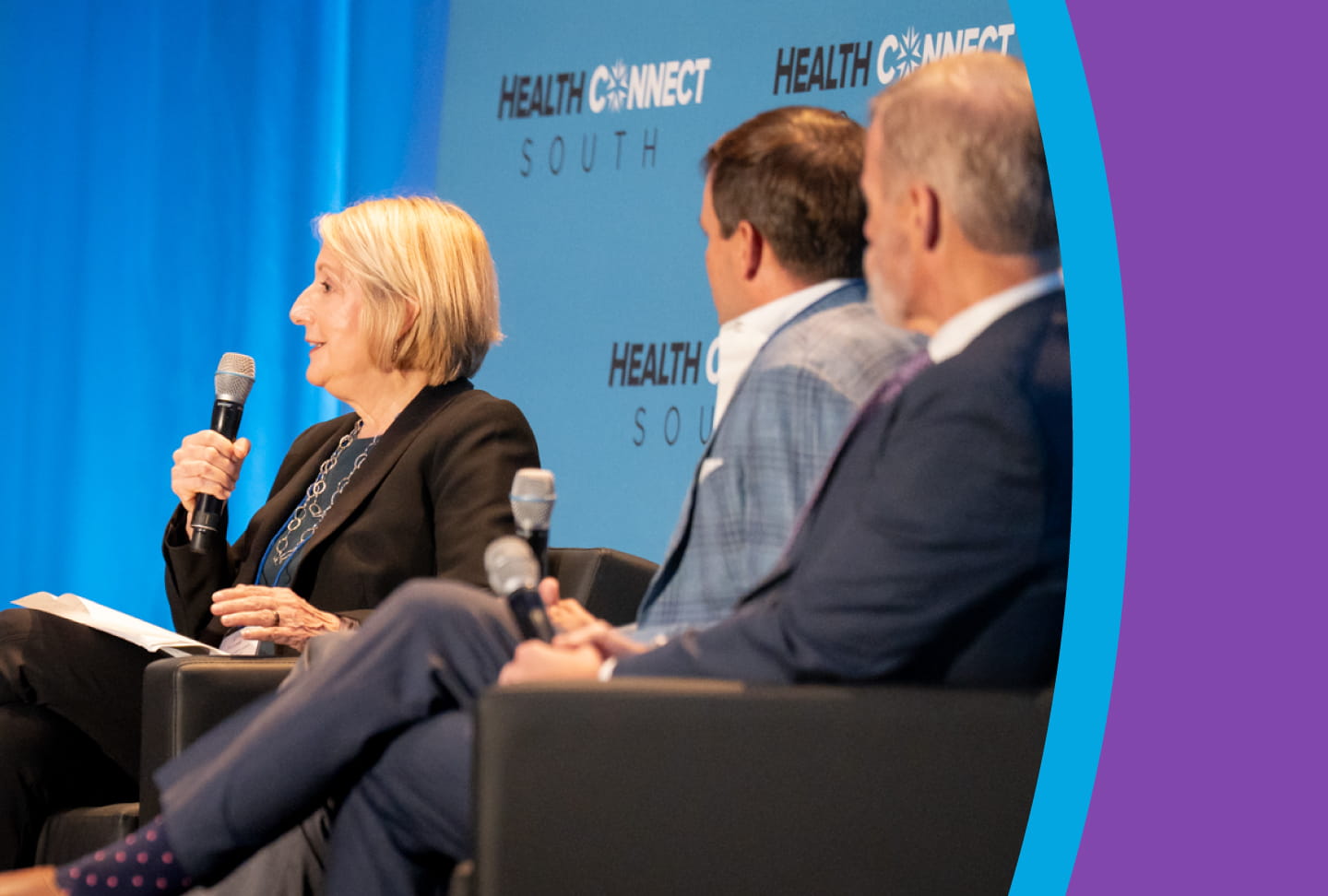Each year, leaders and innovators from across the Southeast come together at Health Connect South to discuss the health needs of our communities and how local systems and organizations can collaborate to address these needs. This year's event, held on September 18 at the Georgia Aquarium, convened healthcare, finance and community leaders to discuss shared solutions for challenges like healthcare accessibility, workforce shortages and health outcomes.
During a panel discussion with other healthcare leaders, Wellstar Health System President and CEO Candice L. Saunders explained how healthcare collaborations can improve access to care and workforce development, and the importance of leveraging technology and innovation to improve the lives of our communities.
"As we look at the future of healthcare, where we're going, what's happening in the healthcare industry from an overall cultural transformation and all the other opportunities and challenges that we face, we see a different future for healthcare— one that is much more holistic, more proactive," said Saunders.
Wellstar knows the importance of collaboration and has long worked with community partners and local systems to enhance the health and well-being of every person it serves across the region.
Last August, Wellstar announced a partnership with the University System of Georgia and the Medical College of Georgia (MCG) in Augusta to create Wellstar MCG Health. The organizations' shared vision for effectively addressing the unique needs of people and communities across Georgia has inspired several programs and initiatives to expand access to care and develop the healthcare workforce of the future.
"As we focus on our biggest problems and opportunities, we must use technology, including AI, to augment care and help our caregivers. But we also want to make sure we can make it more human. We can't forget the important human connection in health care, which we all need to protect," she continued.
Saunders also shared how leveraging innovative technology to advance telehealth has presented significant opportunities for Wellstar and Wellstar MCG Health to reach patients and clinicians in every corner of the state. Through the Rural Hospital Virtual Care Network, pioneered by Augusta University Health, rural hospitals can receive support from local systems like Wellstar for particularly challenging procedures. The network also helps address significant health disparities across rural Georgia, such as maternal and cardiovascular health.
The panelists also discussed the issue of recruiting and retaining clinicians to address the shortages health systems and hospitals have faced in recent years. According to the federal Health Resources Service Administration, Georgia currently has 21% fewer registered nurses than the state needs. The state is expected to see the second-highest shortage in the country by 2035. That's why, as Saunders shared, the Wellstar College of Nursing at Kennesaw State University, in partnership with Wellstar, is working to double the number of students in the next four years, ensuring a strong pipeline of new nurses to address the shortages we continue to see.
"You must have partners; the health systems cannot do this alone. And how do we help people continue to learn and grow? We know that it is not only really good for patient care but also good for business," Saunders continued.
Through Wellstar's partnership with MCG and other state medical colleges and universities, work is underway to expand residency programs to educate hundreds of future clinicians statewide. Students at MCG will also be trained to use Epic, ensuring they are prepared to use the latest digital tools as technology continues to evolve and drive innovation in care delivery.
Wellstar team members also have significant opportunities for professional development and advancement, such as the CareerCare program, which provides funding for tuition in select healthcare career pathways and expands professional development, education and growth opportunities.
Wellstar is proud to partner with organizations across the state to meet Georgians' healthcare needs now and for years to come. Together, these organizations can create the healthcare workforce of the future, leverage technology to increase affordability and accessibility of care, and improve the health of the patients and communities they serve.




